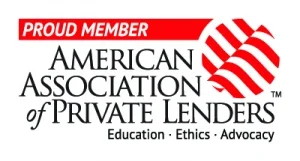Since the real estate bubble burst and lenders began instituting stricter lending policies, investors wholesalers who deal with motivated sellers of distressed properties rely on transactional funding to close the deal.
Transactional funding is used when the goal is to resell property to the end buyer immediately after purchase. The process of simultaneous closing is ideal for investors and real estate wholesalers looking to purchase a property without having to use their own money.
WHAT IS TRANSACTIONAL FUNDING?
Transactional funding is the process of using a short-term loan for the completion of a real estate purchase. When completed properly, a real estate wholesaler can make a lot of money without ever having to use their own funds to finalize the deal.
Transactional funding is designed to be a very short-term loan. Investors must have an end buyer ready to purchase the property from the original investor, usually within a couple of weeks. Some loans are as short as days, or even hours or minutes.
TRANSACTIONAL FUNDING FOR DISTRESSED PROPERTIES
Real estate investors and wholesalers commonly use transactional funding for deals involving probates, bank-owned properties, and other short sale applications. Short sales and real estate owned (REO) sales typically come with stipulations requiring the initial sale to be final before it can be resold to a wholesaler or another entity.
KEY BENEFITS OF TRANSACTIONAL FUNDING:
1. 100% of the Purchase Price is Funded
Transactional lenders are able to fund 100% of the deal because there is already an end buyer in place to complete the sale of the property.
2. No Proof of Income, Credit Check Needed
Transactional funding is based solely on the strength of the deal and the security of having an end buyer to complete the purchase. Therefore, the investor does not have to prove an income level or fill out the usual pile of paperwork needed for traditional real estate loans. There is not even a credit check. This process is ideal for those with bad or no credit, and little capital.
3. Double Close Using Other People’s Money (OPM)
Real estate investors are able to use a third-party lender to fund the deal instead of using their own funds to close. This process of double closing involves a back-to-back purchasing of the property using the original seller and the end buyer.
Using “other people’s money” (OPM) allows investors to use lending capital to close deals and leave their money to put back into the business.
4. Quick Closings
Companies specializing in transactional funding lend money for fast-closing real estate deals. Investors will often need funding within hours or days. Lenders of transactional loans act fast and are accustomed to quick closing schedules.
QUALIFYING FOR TRANSACTIONAL FUNDING
The basic qualifying factors to be approved for transactional funding for a real estate deal are to have a property seller and the documentation that you have a qualified end buyer. Due to the accelerated nature of these deals and without the usual pile of paperwork for traditional real estate loans, the entire process typically takes just a day or two.
No appraisals. No credit check. No proof of income. No job verifications.
CONTACT TIDAL LOANS FOR TRANSACTIONAL FUNDING INFORMATION
Hard money loans should always have an exit strategy. If your lender doesn’t seem to care about how you will pay back the loan, you should find a new lender. Whether you are flipping a property, renting it out, or refinancing, you should have a solid strategy before attempting to take out a hard money loan.
For complete information on the process of transactional funding real estate property deals, contact the industry professionals at Tidal Loans today.


